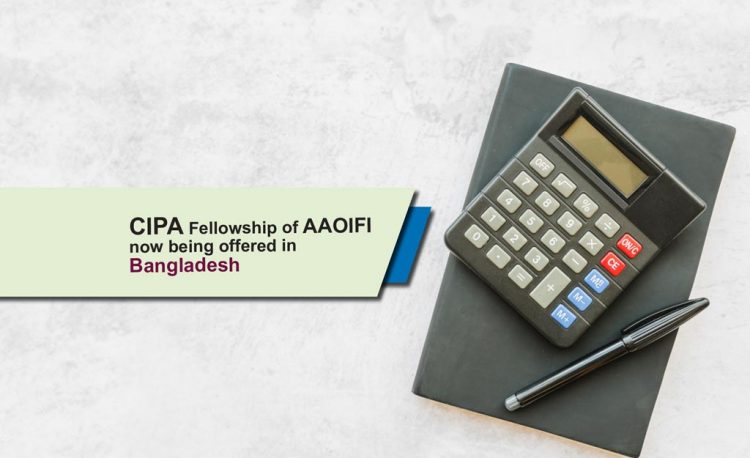About AAOIFI
The Accounting and Auditing Organization for Islamic Financial Institutions (AAOIFI), established in 1991 and based in Bahrain, is the leading international not-for-profit organization primarily responsible for development of Shari’ah and Accounting standards for the global Islamic finance industry. It is supported by more than 200 institutions in over 45 countries including central banks and regulatory authorities In addition to standards development, and since 2007, AAOIFI has been offering its flagship “Certified Islamic Professional Accountant (CIPA)” and “Certified Shari’ah Advisory and Auditing (CSAA)” courses.
About CIPA
CIPA is a professional specialized certification course of AAOIFI and is designed to equip candidates with the requisite technical understanding and professional skills on accountancy and related fields (such as audit, risk management, governance, law, and tax) for Islamic banks, Islamic insurance and financial institutions. The certification places greater emphasis on practical knowledge and realworld applications (and exercises) to deliver an enhanced and optimized learning experience.
CIPA offers Powerful Learning Content:
* Based on AAOIFI standards which is a product of cumulative knowledge and experience of a team of Shari’ah Scholars, professionals, consultants, and academicians, representing 20+countries over a period of 25+ years
* Provides valuable experience in the field of accountancy through the ‘Practical Experience Requirement’ (PER)
* Encourages multi-disciplinary learning by including, in addition to accounting, the Shari’ah, Audit, Law, Taxation, Risks, Capital Adequacy, and Governance topics
CIPA offers strong prospects for professional success & growth:
* Highly specialized Islamic accountancy certification as demanded by the employers in the global industry covering ~75countries
* Backed by AAOIFI—the leading international standard-setting body for the Islamic finance industry
* Globally recognized by Regulators, Islamic financial Institutions, Professional Accounting Bodies, and training centers

